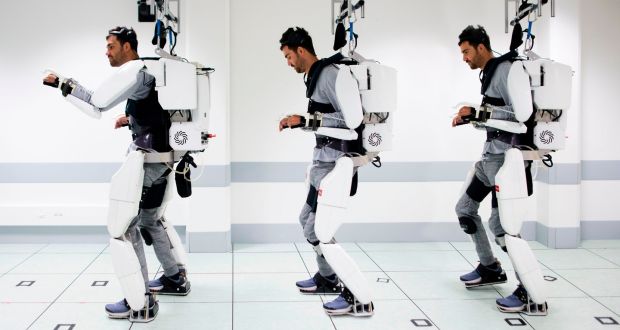A man paralyzed from the shoulders down has been able to walk using a pioneering four-limb robotic system, or exoskeleton, that is commanded and controlled by signals from his brain.
With a ceiling-mounted harness for balance, the 28-year-old tetraplegic patient used a system of sensors implanted near his brain to send messages to move all four of his paralyzed limbs using the whole-body exoskeleton after a two-year-long trial.
The results, published in The Lancet Neurology journal on Thursday, bring doctors a step closer to one day being able to help paralyzed patients drive computers using brain signals alone, according to researchers who led the work.
But for now the exoskeleton is purely an experimental prototype and is “far from clinical application”, they added.
“[This] is the first semi-invasive wireless brain-computer system designed . . . to activate all four limbs,” said Alim-Louis Benabid, a neurosurgeon and professor at the University of Grenoble, France, who co-led the trial.
He said previous brain-computer technologies have used invasive sensors implanted in the brain, where they can be more dangerous and often stop working. Previous versions have also been connected to wires, he said, or have been limited to creating movement in just one limb.
(Agencies)









Comment